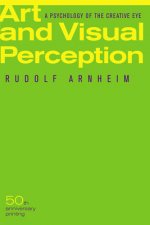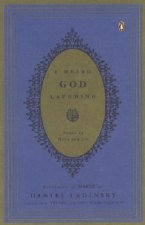
Kód: 06464461
Mikhail Bakhtin
Autor Michael Holquist
In such diverse fields as semiotics, literary theory, social theory, linguistics, psychology, and anthropology, Mikhail Bakhtin's importance is increasingly recognized. His posthumous fame comes in striking contrast to his obscuri ... celý popis
- Jazyk:
 Angličtina
Angličtina - Vazba: Brožovaná
- Počet stran: 398
Nakladatelství: Harvard University Press, 1984
- Více informací o knize

Mohlo by se vám také líbit
-

Culpeper's Complete Herbal
496 Kč -

Flow Cytometry Protocols
5985 Kč -

Beginner Watchmaking: How to Build Your Very First Watch
442 Kč -

Witches Tarot Mini
306 Kč -

ISE Thermodynamics: An Engineering Approach
1806 Kč -

Botanical Line Drawing
446 Kč -

Zoo Sounds
357 Kč -

Paradise Kiss
639 Kč -

Secret Gratitude Book
516 Kč -

Guitar Pedals
582 Kč -

Godzilla: The Half-Century War
656 Kč -

Giovanni
442 Kč -

Plain Bad Heroines
290 Kč -

The Great Book of American Idioms: A Dictionary of American Idioms, Sayings, Expressions & Phrases
392 Kč -

Japanese Design Since 1945: A Complete Sourcebook
1658 Kč -

Ghidra Book
1320 Kč -

Code Name Bananas
409 Kč -

Mastering the Lightning Network
1481 Kč -

DIY Geodesic Growdome
232 Kč -

Autobiography of Mother Jones
264 Kč -

Practical Heathen's Guide to Asatru
402 Kč -

Symbol
476 Kč -

Time Traveler's Wife
290 Kč -

Monk
234 Kč -

Art and Visual Perception, Second Edition
869 Kč -

Animal Liberation
337 Kč -

Eleven Rings
433 Kč -

Covid By Numbers
323 Kč -

Google Hacking for Penetration Testers
1483 Kč -

Stompbox
1059 Kč -

Warriors: Dawn of the Clans #2: Thunder Rising
196 Kč -

Neverseen
468 Kč -

English for Everyone Business English Practice Book Level 1
291 Kč -

How to Draw Video Games
480 Kč -

Nikt nie musi wiedzieć. Hubert Meyer. Tom 4
146 Kč -

BLUE REFLECTION: Second Light (PlayStation PS4)
1114 Kč -

A Silent Voice - Luxury Edition 01
710 Kč -

Tma - audiokniha
335 Kč -

Kompletny przewodnik po DAX
777 Kč -

The 100. Staffel.4, 2 Blu-rays
645 Kč -

Poledance Passion - Technik, Training, Leidenschaft
1684 Kč -

Pippi Langstrumpf. Der Comic
364 Kč
Darujte tuto knihu ještě dnes
- Objednejte knihu a zvolte Zaslat jako dárek.
- Obratem obdržíte darovací poukaz na knihu, který můžete ihned předat obdarovanému.
- Knihu zašleme na adresu obdarovaného, o nic se nestaráte.
Více informací o knize Mikhail Bakhtin
Nákupem získáte 174 bodů
 Anotace knihy
Anotace knihy
In such diverse fields as semiotics, literary theory, social theory, linguistics, psychology, and anthropology, Mikhail Bakhtin's importance is increasingly recognized. His posthumous fame comes in striking contrast to his obscurity during his lifetime (1895-1975), much of it spent as a semi-invalid in a succession of provincial towns. He received no public recognition, in the Soviet Union or abroad, until the last dozen years of his long life--not surprisingly, given the historical circumstances. His books on Freudianism (1927), on Formalism (1928), and on Marxism and the philosophy of language (1929) were published as the work of others, as were a number of important essays. His study of Dostoevsky appeared under his own name but only after his arrest and sentence to exile, and it quickly disappeared from sight. Some manuscripts were never published; one was used by Bakhtin for cigarette paper. His book on Rabelais, completed in 1940, remained unpublished for twenty-five years--until, in a less repressive political climate, friends had succeeded in negotiating a reissue of the book on Dostoevsky. The Rabelais book, when translated, caused a stir among folklorists, anthropologists, and social historians, with its theory of carnival and of ritual inversions of hierarchy. The book on Dostoevsky aroused intense interest among literary theorists in the concept of the polyphonic novel and the many authorial voices to be heard therein. Similarly, as Bakhtin's other writings have appeared in translation, he has been hailed in disparate circles for his contributions to linguistic, psychoanalytic, and social theory. But among all those who have studied various aspects of Bakhtin's work, few have been in a position, or even attempted, to assess his total achievement. It is the great merit of Clark and Holquist's book that they have endeavored, insofar as possible, to give us the complete life and the complete works of this complex and multifaceted figure. The authors have had unique access to the Bakhtin archive in Moscow, have traced further material in other cities in Europe, and have interviewed many persons who knew Bakhtin. The phases of his life are placed in their physical and intellectual milieux, and accounts are given of the figures who made up the various Bakhtin circles over the years. All of the works, published and unpublished, are discussed, in the context of European philosophical movements and the currents of thought of the time. Underlying and informing Bakhtin's particular theories in various fields was, in the authors' view, his lifelong meditation on the relation between self and other. The philosophy he evolved has come to be called dialogism, since it conceives of the world in terms of communication and exchange. It is a world view with wide-ranging implications for the human sciences.
 Parametry knihy
Parametry knihy
Zařazení knihy Knihy v angličtině Literature & literary studies Literature: history & criticism Literary studies: general
1735 Kč
- Plný název: Mikhail Bakhtin
- Autor: Michael Holquist
- Jazyk:
 Angličtina
Angličtina - Vazba: Brožovaná
- Počet stran: 398
- EAN: 9780674574175
- ISBN: 9780674574175
- ID: 06464461
- Nakladatelství: Harvard University Press
- Hmotnost: 549 g
- Rozměry: 162 × 240 × 23 mm
- Datum vydání: 01. July 1984
Oblíbené z jiného soudku
-

How to Read a Book
303 Kč -

Hamlet: The Oxford Shakespeare
268 Kč -

Art of Rhetoric
80 Kč -

Birth of Tragedy
250 Kč -

Selected Essays
276 Kč -

Complete Short Stories of Ambrose Bierce
518 Kč -

Serpent Power
523 Kč -

Moby-Dick
465 Kč -

Annotated Alice
323 Kč -

Nordic Noir
410 Kč -

Marquis de Sade: A Very Short Introduction
273 Kč -

Children's Fantasy Literature
670 Kč -

Mysteries of Udolpho
302 Kč -

Joseph Andrews and Shamela
228 Kč -

Mabinogion
276 Kč -

The Picture of Dorian Gray
170 Kč -

Consolation of Philosophy
276 Kč -

Seven Basic Plots
575 Kč -

Gulliver's Travels
170 Kč -

Life of Samuel Johnson
631 Kč -

Powers of Horror
1243 Kč -

Road to Hel
1373 Kč -

Sejong Korean Student Book 2A - English Edition, m. 1 Audio
733 Kč -

Anna Karenina
218 Kč -

Wide Sargasso Sea
236 Kč -

Edda
261 Kč -

Finn and Hengest
250 Kč -

Sejong Korean 3, m. 1 Audio
681 Kč -

If Not, Winter: Fragments Of Sappho
464 Kč -

Africa's Tarnished Name
101 Kč -

Complete Poetry
196 Kč -

Captain is Out to Lunch
276 Kč -

Devils
269 Kč -

Two Treatises of Government
264 Kč -

Count of Monte Cristo
276 Kč -

Sejong Korean 2 (Korean+English Version), m. 1 Audio
681 Kč -

Moveable Feast
268 Kč -

Moveable Feast
290 Kč -

Reading Greek
964 Kč -

Dream Story
276 Kč -

Reading Greek
1021 Kč -

Analysis of Donna Haraway's A Cyborg Manifesto
243 Kč -

Poetics
276 Kč -

Selected Journals of Lm Montgomery Volume III 1921-1929
516 Kč -

Leaves of Grass
462 Kč -

I Heard God Laughing
382 Kč -

Tragedy of King Richard III: The Oxford Shakespeare
223 Kč -

Sejong Korean Student Book 1B - Korean Version, m. 1 Audio
733 Kč -

Wild Ass's Skin
318 Kč
Osobní odběr Praha, Brno a 12903 dalších
Copyright ©2008-24 nejlevnejsi-knihy.cz Všechna práva vyhrazenaSoukromíCookies



 Vrácení do měsíce
Vrácení do měsíce 571 999 099 (8-15.30h)
571 999 099 (8-15.30h)